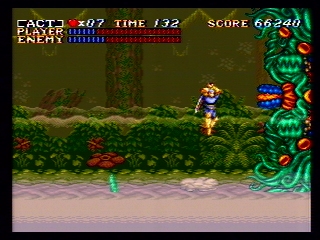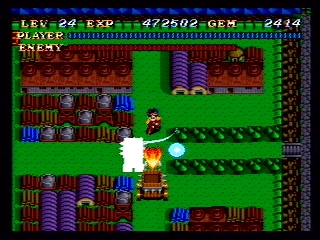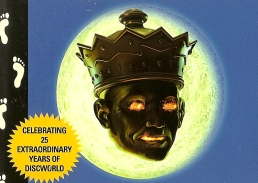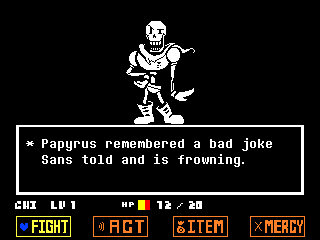
ActRaiser (SNES)

(This is a game I replayed after changing the internal battery)
Those of you who follow me on Twitter will know I initially completed the story mode at the end of October, but I wanted to complete Professional mode before reviewing this. And because I was a dumb-dumb who thought the game autosaved, I wound up having to play the story mode twice to unlock Professional mode.
ActRaiser is a classic action/god game hybrid, but suffers a bit from being one of the first SNES games; it's got a good atmosphere and the visuals hold up pretty good, but it's short and easy and the SNES brought a bunch of toys that the developers wanted to play with, but didn't know how to use. Many sections are designed with the idea that the Master is more agile than he is, such as jumps that can just barely make and fast-moving enemies and attacks.
The town building... man, I don't know what to think of it. It probably works best the first time you play the game, but on replays it's just busywork with lots of unnecessary, unskippable text (another symptom of Launch Gameitis). Professional mode is all the action scenes back to back with tougher enemies and no magic, so it's definitely the meatiest bit of the game. But it's also in this mode that the Master's lack of mobility becomes most apparent, particularly when you reach the waterfall dragon boss, the tree level and those axe-throwing zombie Simon Belmonts, or the sped-up Minotaurus rematch in the final level.
Rating: 



Soul Blazer (SNES)

(This is also a game I replayed after changing the battery, but strangely, Soul Blazer held the old save during the change.)
Soul Blazer is a spiritual successor to ActRaiser where you destroy monster nests to rebuild civilization after a Satan allegory destroyed it, only the game plays more like Zelda than Castlevania crossed with SimCity. Having a more direct hand in the events helps the world feel there's more to it (or at least attempts to. I'll get to that in a minute), but like its predecessor it suffers from being too short and easy.
Quintet wanted to tell some kind of story about reincarnation and redemption, but hadn't figured out how to use the SNES to tell that story. What would have helped was to make Blazer more involved with the world around him. He was supposed to be a divine being who was sent down to Earth with the sole mission to fix somebody else's stupid then head back to Heaven, but through interacting with the inhabitants of the world gradually develops a fascination with mortals and the desire to save them for more personal reasons than "God told him to", but because he's a silent protagonist both verbally and reactively it flops. "Well, maybe you're full of shit and he was supposed to an emotionless brick that kept his distance from the world", you might be thinking, but the ending says otherwise, although I think him falling in love with Lisa is another missed target because the two only interact, like, twice in the whole game. The game also has a tendency to throw plot themes out willy-nilly, which only serves to obscure what the game is trying to say. You start out with goats pondering reincarnation. Then there's some stuff about the destructive power of human greed. Then Dr. Leo starts banging on about achieving your dreams through patience. At the end, it throws out a twist that the World of Evil is created from the darkness in the back of of every living creature's mind. Pick a theme and stick with it, game.
I can't say what I thought of the ending the first time I saw it, but looking at it now it's really cruel. Spoilers for a twenty-five year old game: (At the end, Blazer is unable to let go of the mortal world and Lisa, so God sends him back to Earth as a human... with his memories wiped, which I have two problems with. First of all, he no longer remembers the woman he gave up his divinity to be with. But the bigger problem is that everyone else still remembers Blazer and what he did. He's going to go to Magridd Castle and see a statue of his likeness, people are going to want to high-five him for that time he saved the world from Satan, and he's not going to know what the hell they're talking about.)
Rating: 



Dare to Be Stupid (Weird Al)

Dare to Be Stupid is home to a number of Weird Al classics like the titular "Dare to Be Stupid", "One More Minute" which is my favorite anti-romance song, and "Yoda" which as well as being the first song Al wrote was probably the first of his songs I ever heard. I do like "Slime Creatures From Outer Space", but I can understand how the heavy synthesis could grate some people. And boy, is a song about how great Cable TV is laughable in today's environment.
What's going on with "George of the Jungle"? It's so short and randomly insterted that I'm inclined to believe it's from a show that commissioned him to write the theme song. I know "Harvey the Wonder Hamster" in Alapalooza was the song he'd sing whenever his hamster appeared on the Weird Al Show.
"Hooked On Polkas" is okay as far as polka covers go, but it still feels like it's taking up space that could have gone to something else. The uneasy feeling I get listening to "Like a Surgeon" is a pretty good example of why I could never play Surgeon Simulator. I'll talk about "This Is the Life" below in my Weird Al in 3-D quickie. And while "Girls Just Want to Have Lunch" is probably the worst song song on the disc it isn't offensive to listen to, just could have been less whiny and nasally.
Rating: 



Feet of Clay (Terry Pratchett)

Well, it only took me 19 Discworlds, but I finally realized something else about them; they probably need to be read more than once to get the most out of them. They have a literal side, like this one's murder mystery, but the satirical side is harder to catch on the first time (well, for me, at least. Maybe some people can get everything in one go). I saw glimpses of it in lines like "He put words in his head!" when referring to the piece of paper a golem needs inside its head to work, and the source of the arsenic poisoning which I won't spoil, but now that I've cracked the literal shell I'll have to reread this later to dig into the more meta filling. Granted, there's some I really don't want to reread (i.e. the Granny Weatherwax ones).
As for what I got out of it on the first run, it stars the Night Watch who for my money are the strongest of the recurring protagonists, as they try to solve the mystery of a string of murders (a secret somewhat undermined by it being given away on the cover). The message of the story is that people don't want freedom so much as a leader they can mold, and humans and golems aren't so different. There's also plenty of laugh-out-loud antics from the blissfully unaware Corporal Carrot, his werewolf girlfriend Angua, and newcomer Cheery Littlebottom who... well, let's say is pioneering Dwarvish feminism. And at the center of it is Sam Vimes, the straight-man who keeps the story from descending into the less-fun anarchy.
By the way, I always thought it interesting that Terry Pratchett went darker with Amazing Maurice, a book he wrote for younger readers, than he did with any of the adult Discworlds I'd read. Maybe it was because Amazing Maurice was written after Pratchett's style evolved, because Feet of Clay gives the scene where Maurice first encounters Spider in the sewer a run for its money when the clues lead Vimes to the alley he grew up in just in time to find his old nanny and a baby dead of arsenic poisoning.
(R.I.P. Sir Terry Pratchett)
Rating: 



Undertale (PC)

I imagine like most people, my introduction to Undertale was my Twitter feed filling up with pictures of a sassy skeleton and a goat woman. I was going to hold off on playing this until it went on sale because I'm cheap like that, but one day I found Ragey from Random Hoo-Haas had left a present under my Steam tree, so I spent my Thanksgiving figuring out what this skeleton meme shit was all about.
Undertale takes most of its inspiration from Earthbound, and I know what long-time readers are thinking: "Don't you hate Earthbound?" Well, I did years ago, but I've warmed up to it (it's still not a personal favorite, but I think in an ancient update log I described it as a game I wouldn't mind sitting next to in the lunch room). And in any case, what initially pissed me off about Earthbound doesn't apply to Undertale (i.e. the story treating one of the least interesting characters in the entire game like the only important one, that point of no return in the final boss dungeon that tricked me replaying the entire game to stock up on weapons the final boss was immune to), so even if I did still hate Earthbound I'd probably still enjoy this. Undertale also pays tribute to other RPGs, most notably riffing the opera in Final Fantasy VI, and I'm pretty sure the flower's laughter is meant as an homage to the Lavos scream. And if nothing else, like a modern day Final Fantasy: Mystic Quest, whether you love it or hate it you have to admit the soundtrack's bitching.
Undertale's two main gimmicks are enemy attacks reminiscent of bullet-hell shooters, and the ability to interact with the monsters and end battles peacefully as an alternative to stabbing them in the face. The latter makes for a number of memorable battles, like a giant armored dog, a danceoff with a fabulous robot, or a pair of guards you convince to come out of the closet. The interactive battles combined with the standard JRPG talky-talky affair means Undertale is very much a narrative-driven game, and you have to be willing to D'aww and Squee at game dialogue to get the most out of it... or at least that's how it is until the final boss of the Neutral path when the game suddenly turns into the bastard grandchild of the Giygas fight from Earthbound, Five Nights at Freddy's, Eversion, and Eternal Darkness.
Vague Spoiler: Certain graphic and sound effects scare the hell out of me, and the fake glitch when you restart the game for the final boss of the Neutral path freaked me out so bad, I smashed the game closed three times before could sit through it long enough to get to the boss.
People will tell you to avoid spoilers for this game, and while it's true you probably want to keep the story fresh, part of that is due to some very meta stuff the game uses to screw with you. Early on I misunderstood the Toriel fight thanks to some lousy advice an NPC had given me, and, well, let's just say the game knew what I did.
So Undertale won my heart, but I'm not going to be writing W.D. Gaster/Purple Guy slash fic between classes (unless somebody wants to read that shit so bad they're willing to pay me for it), and am more than willing to admit to the game's glaring flaws:
1 - I know it's supposed to show how overprotective Toriel is, but depending on how charitable you're feeling the game's tutorial segment is either tedious or straight-up condescending.
2 - The constant phone interruptions in the fire area can fuck right off.
3 - In the final area of the Neutral path you're constantly stopped by monsters for an info dump. The secrets revealed in it get built upon when or if you continue on to the True Pacifist ending, but it still would have been nice if this information had been integrated into the game instead of suddenly vomited all over you at the 11th hour.
4 - While I understand the game is about subverting your expectations, some of these twists exist just for the sake of having plot twists. Namely, the one about the name you choose at the beginning of the game. I also have to call bullshit on the one about Boss Monsters growing up by absorbing their parents' souls, which in turn causes their parents to age. Like, what happens if the parents are killed before the kid is old enough to have kids of their own? How many children can Boss Monsters have if they have to split up their soul energy among them? I swear this twist only exists to explain why Asgore has been alive for so long (since his son died), disregarding all the other questions it raises.
I played True Pacifist and have no intention of doing a Genocide run. While I'd love to try my hand at the Genocide-exclusive bosses even though I'd totally get my ass handed to me, it's hard enough for me to be a bastard in games like Fable and Mass Effect that don't permanently poison your game if you ever play the bad side. Plus, I could never bring myself to kill Papyrus.
(Post Script: In January 2016 I replayed the game on a different computer and discovered a whole bunch of stuff I'd missed the first time, including something about the Papyrus fight: the first time I beat him, I thought you just had to have enough HP to tank his final attack. I don't know if the way you evade it is brilliant or a huge dick move, or if I'm just really thick)
Rating: 




Weird Al in 3-D (Weird Al)

In 3-D was only Weird Al's second album, but it's already a vast improvement over the first. You start to see more of the trends that would define Weird Al crop up here, such as the parodies "Eat It" and "Theme Song From Rocky XIII" being made to sound like the songs they're parodying while the first album's parodies were done with accordians and fart noises. "Midnight Star" is a hodgepodge of absurd ideas that would spawn songs like "Dare to Be Stupid", "Jerry Springer", and "Talk Soup" which I want to come up with a name for so I'll call them "wackiness salad". "Brady Bunch" feels like the precursor to "Achy Breaky Song", and In 3-D introduces us to the Polka cover that I almost always feel is there to fill up space. All it's missing is the hateful love song.
There's usually a song on Weird Al albums that works better when I zone out slightly and treat Al's voice as another instrument instead of paying attention to what's being said. For Polka Party it was "Don't Wear Those Shoes", on Dare to Be Stupid it was "This Is the Life", on Bad Hair Day it's "Syndicated Inc", and here it's "King of Suede".
Others like "Buy Me a Condo" and "Mr. Popeil" feel horribly dated. Is the former supposed to be a reference to some cultural trend from the 80s? Otherwise, I have no idea what's going on that one. And how many people under 25 know who Ron Popeil is? Also, it's possible "That Boy Could Dance" was meant to be a satire on movies that teach you it doesn't matter if you have no other skills, talents, or ambitions so long as you can dance, but there's still something gross about it.
Rating: 


Alapalooza (Weird Al)

Alapalooza is probably my second favorite Weird Al album, behind Bad Hair Day. The standout of this album is the deliciously cantankerous "Achy Break Song", but it's also got great parodies in "Jurrasic Park", "Bedrock Anthem" and "Livin' in the Fridge" (sometimes I wonder if it makes me a horrible person that for any song Weird Al has parodied aside from "Another One Bites the Dust", I'm far and away more familiar with the Weird Al version). Alapalooza is also home to "Bohemian Polka" AKA the best Weird Al polka cover ever.
Now let's categorize the other songs:
The One I Like, But I Wouldn't Crucify You If You Didn't: "Traffic Jam"
The One For Zoning Out: "Talk Soup"
The One With Funny Lyrics And Lackluster Music: "Young Dumb and Ugly"
The One With Good Music And Lackluster Lyrics: "She Never Told Me She Was a Mime"
The Dud: "Waffle King"
"Uh, Codie, what's the difference between a song that's better if you ignore the lyrics, and a song with good music and meh lyrics?" The former works better when I ignore the specific words and treat Al's voice as another piece of the music, while the latter leaves me wishing Al's voice was gone entirely, or replaced with an actual instrument. And in the case of "Talk Soup", the lyrics are actually amusing and I can switch between the two approaches.
Rating: 


